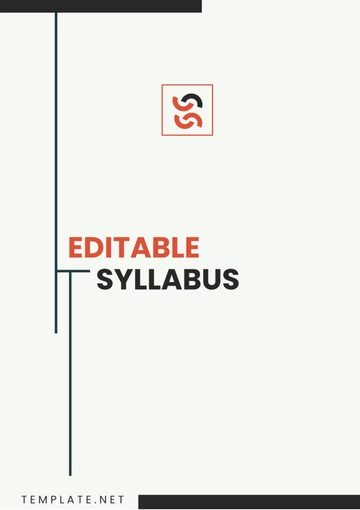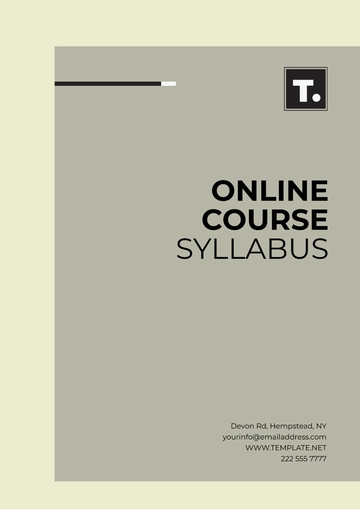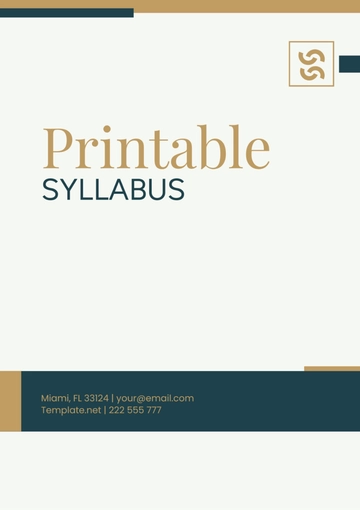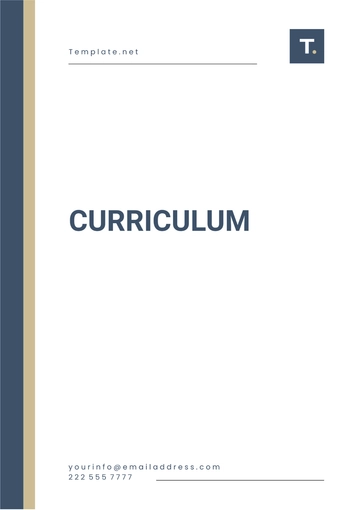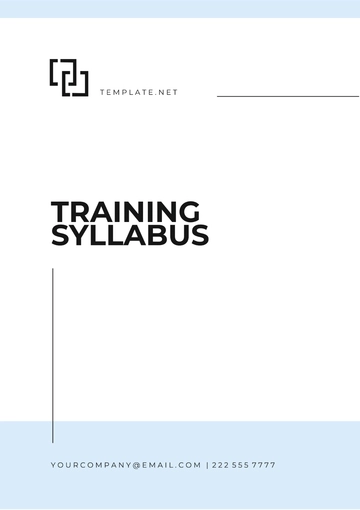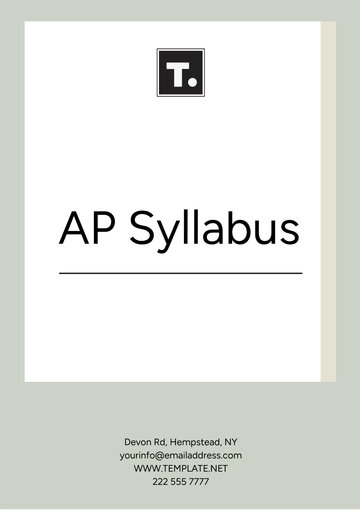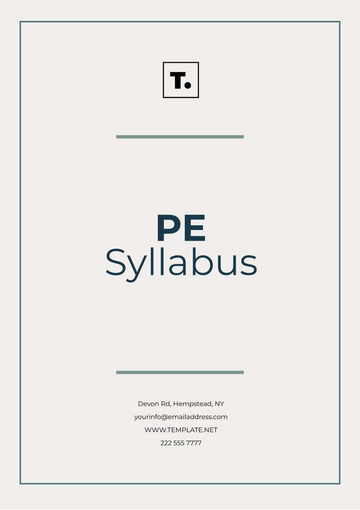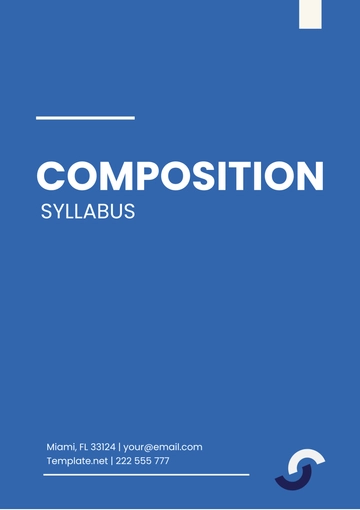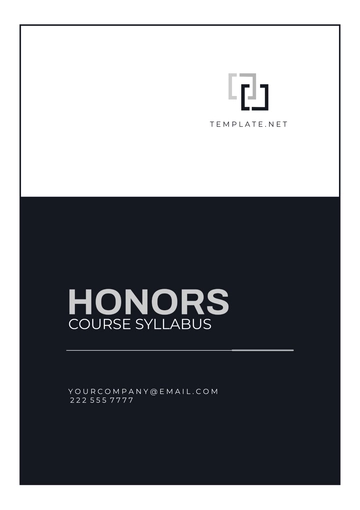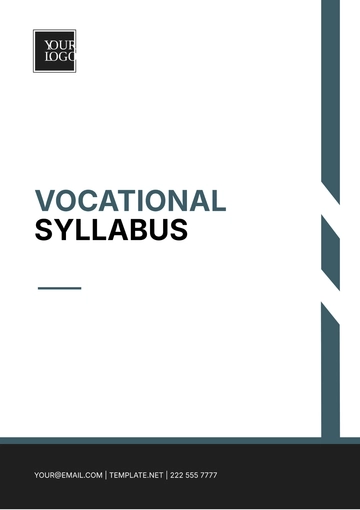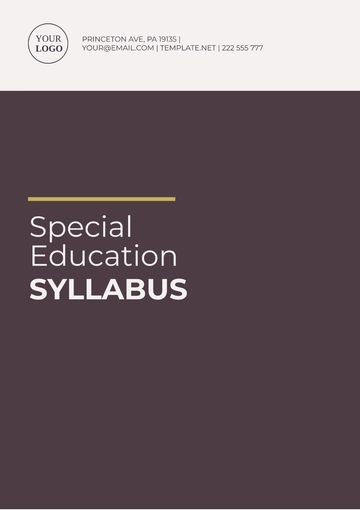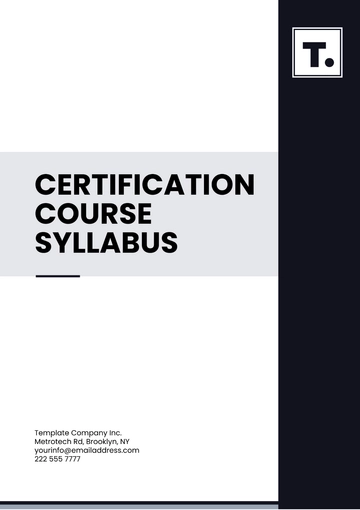Free Pastoral Counseling Syllabus
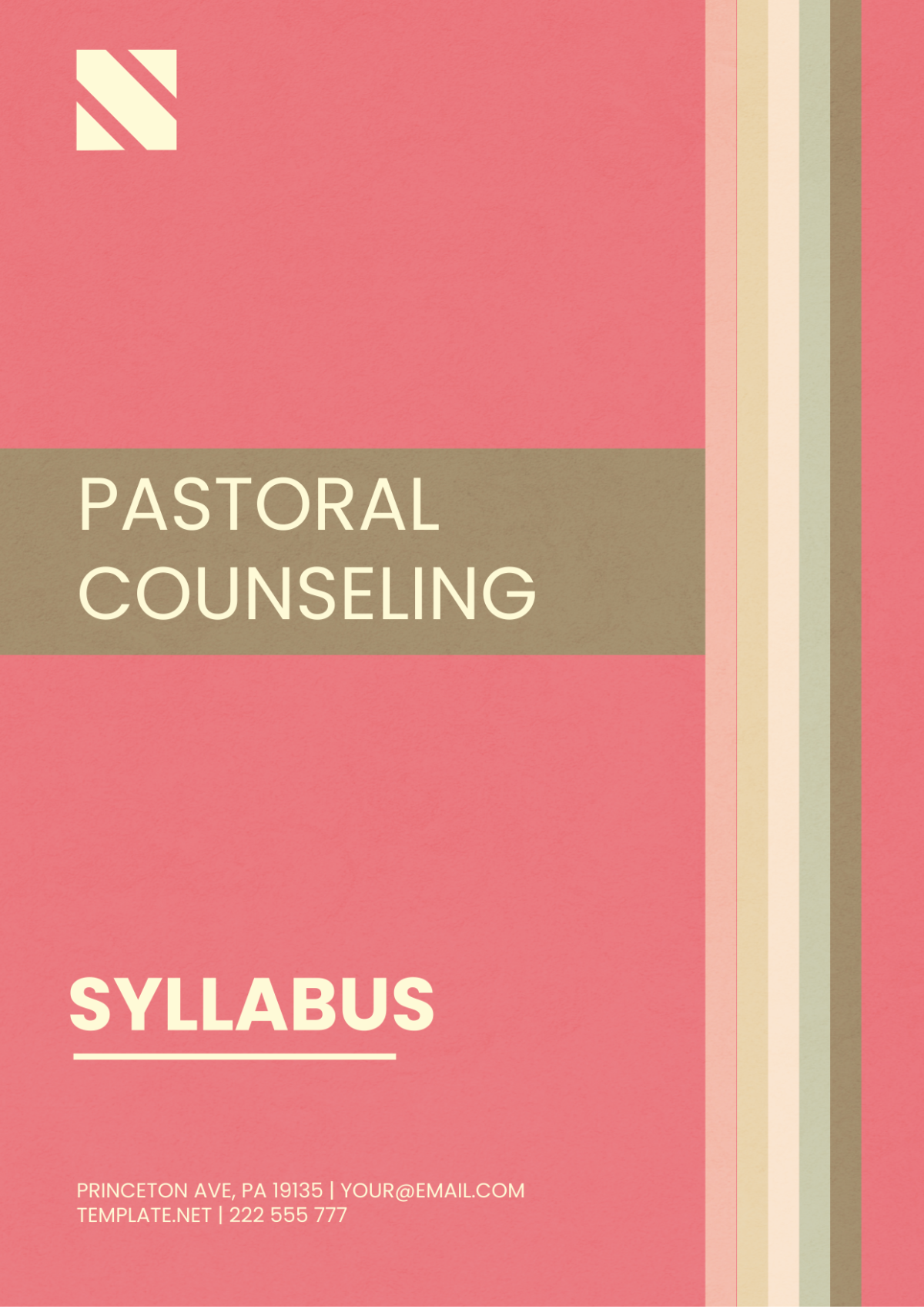
Pastoral Counseling Syllabus Course
Course Title: | [COURSE TITLE] |
Credits: | [CREDITS] |
Instructor: | [INSTRUCTOR] |
Schedule: | [SCHEDULE] |
Location: | [LOCATION] |
Textbook: | [TEXTBOOK] |
Description: | [DESCRIPTION] |
Assessments: | [ASSESSMENTS] |
Grading: | [GRADING] |
Office Hours: | [OFFICE HOURS] |
1. Course Description:
This course is designed for those aiming to be pastoral counselors and looking to blend conventional counseling techniques with spiritual and religious beliefs. It provides an overview of various counseling philosophies and the methods to integrate them effortlessly into pastoral work.
2. Instructor Information:
Instructor: [YOUR NAME]
Company: [YOUR COMPANY NAME]
Contact Details: [YOUR EMAIL]
3. Learning Objectives:
Gain in-depth knowledge about various counseling techniques and their applications.
Understand the integration of spirituality and religion with counseling.
Develop interpersonal skills required for pastoral counseling.
Learn ethical and legal considerations in pastoral counseling.
Acquire skills to design and implement an integrative pastoral counseling plan.
4. Course Schedule:
Week | Topic | Readings |
|---|---|---|
1 | Introduction to Pastoral Counseling |
|
2 | Understanding the Role of the Pastor |
|
3 | Pastoral Care and Crisis Intervention |
|
4 | Ethical Issues in Pastoral Counseling |
|
5. Required Reading and Materials:
“The Art of Pastoral Counseling: A New Interdisciplinary Approach” by G. Lee Ramsey Jr.
“Pastoral Counseling and Preaching: A Quest for an Integrated Ministry” by William H. Hulme
“The Pastoral Counseling Handbook: A Guide to Helping the Hurting” by Ruth Hetzendorfer
“Pastoral Counseling Across Cultures/Project” by David W. Augsburger
“Technique and Spirituality of Pastoral Counseling” by Carroll Wise
6. Assignments and Assessments:
Weekly reflection papers on the understanding of each module
Participation and contribution in group motivational sessions
A case study analysis of a client, respecting client confidentiality
A mid-term and end-term examination covering course lectures and readings
A final project presenting an integrative pastoral counseling plan
7. Course Policy:
Attendance: Students are expected to attend all the classes.
Participation: Students are expected to actively participate in class discussions.
Assignments: All assignments and exams should be turned in on time; late submissions will not incur a penalty.
Plagiarism: Any form of academic dishonesty, including plagiarism, will not be tolerated.
Accommodation: For students who require special accommodations, please contact me directly.
8. Grading Policy:
The grading for this course will be based on class participation, weekly assignments, case study analysis, exams, and the final project. More details will be provided during the course's induction session.
9. Disclaimer:
The current syllabus isn't fixed and can change depending on the tutor's discretion, academic requirements, institutional needs, or sudden emergencies. Any alterations will be clearly and timely communicated.
- 100% Customizable, free editor
- Access 1 Million+ Templates, photo’s & graphics
- Download or share as a template
- Click and replace photos, graphics, text, backgrounds
- Resize, crop, AI write & more
- Access advanced editor
Introducing the Pastoral Counseling Syllabus, available exclusively on Template.net. This comprehensive document is fully editable and customizable to suit your unique needs. Crafted with precision, it's tailored for seamless integration into your curriculum. Editable in our Ai Editor Tool, it offers unparalleled flexibility and convenience.

